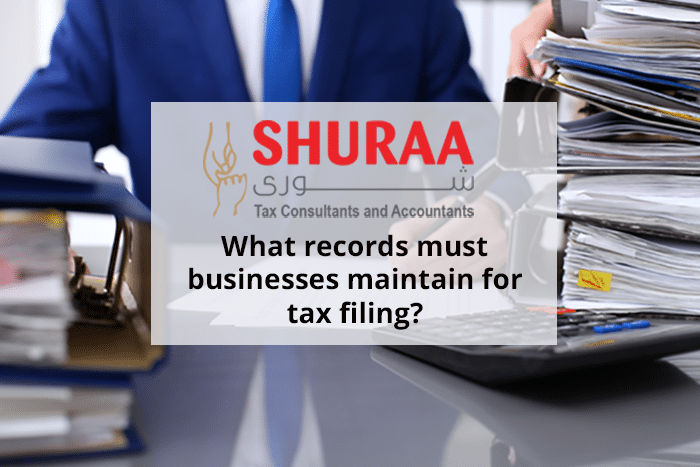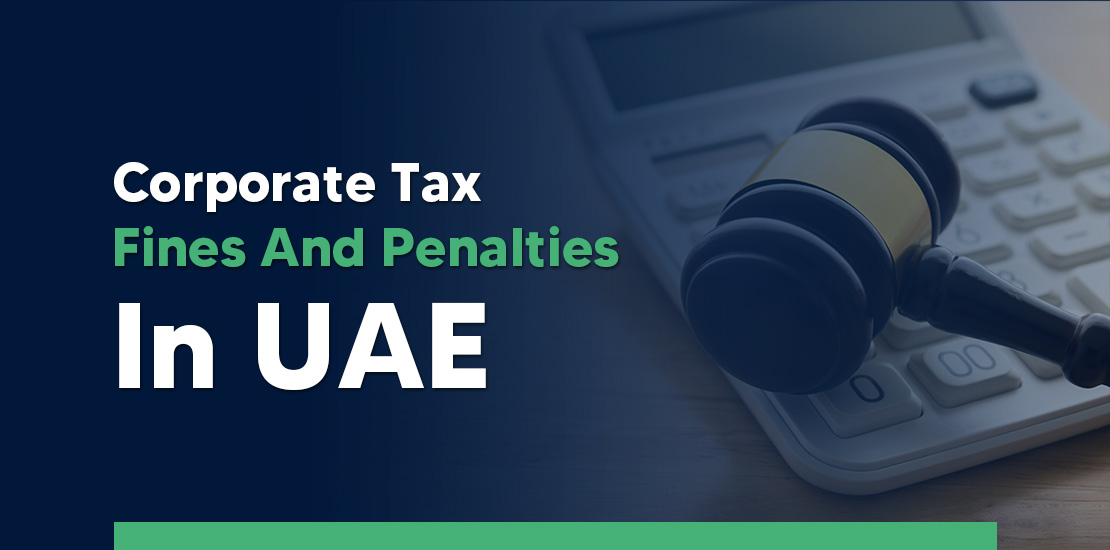Table of Contents
In accordance with the UAE Federal Tax Authority, companies in the UAE have to record their financial transactions for UAE tax filing every interval. Tax filing also referred to as VAT return filing has to be done by a taxable person at regular intervals depending upon the company’s tax period.
Business and commercial entities are to ensure that their financial records are accurate and up to date. The companies need to ascertain that in order to file tax in Dubai or anywhere across the UAE they also have to maintain all the monthly, quarterly and a yearly financial transaction made under the company.
The Federal Tax Law stated that commercial entities require to maintain company accounts, records, and commercial books. Also, the company needs to keep all the documents related to taxation, such as older tax returns, documents related to the FTA, etc.
Although the documentation or records may vary from company to company – Shuraa Tax Consultants and Accountants have listed the most relevant documents that any business must record for UAE tax filing and to make it available to FTA if requested in future.
- Companies must maintain records of all supplies and imports of goods and services for tax filing.
- For tax filing, they must record tax invoices, tax credit notes, alternate documents for goods and services received.
- For tax filing, they must have a record of tax invoices, tax credit notes and alternate documents issued.
- Businesses should also keep a record of goods and services that have been disposed of or used for matters not related to the business.
- A detailed record of VAT paid on the unused or disposed goods and services must also be documented.
- Records of goods and services purchased for which the input tax was not deducted.
- Records of exported goods and services in order to file tax returns.
- Records of adjustments or corrections made to accounts or tax invoices.
- Records related to Capital Assets like a register of capital assets, Input tax on a capital asset, related adjustments for at least ten years.
- Output tax due on taxable supplies and output tax due on taxable supplies accounted for via the reverse charge mechanism.
- Any records related to a real estate required to be kept shall be held for a period of 15 years after the end of the Tax Period to which they relate.
In addition, companies should keep a VAT record or account which shows:
- Output due on taxable supplies
- Output tax due on based on reverse charge mechanism
- Output tax due after the correction of any errors or adjustments;
- Input tax recoverable on supplies or imports;
- Input tax recoverable after the correction of any errors or adjustments.
Failure to keep the required records and other information as per the Tax Procedures Law and the Tax Law will attract a penalty of AED 10000 for first-time failure or AED 50000 in case of repetition. There are other penalties related to failures in record keeping and submitting details requested by authorities.
Tax filing in the UAE is best done by a taxable person or tax and accounting consultants offering accounting services in Dubai or anywhere across the UAE.
We are Shuraa Tax Consultants and Accountants do not only do tax filing but also offer you tax return preparation services. Our tax and accounting consultants make sure that you have every document recorded for tax filing. At Shuraa Tax we offer you certified tax preparer that is well aware of the various tax laws applied by the FTA for tax filing in the UAE.
So, if you are doubtful on how to file your own taxes or are searching for the right tax filing consultants – simply speak to our taxation experts or tax and accounting consultants.
Call us on +971508912062 or email us info@shuraatax.com.













